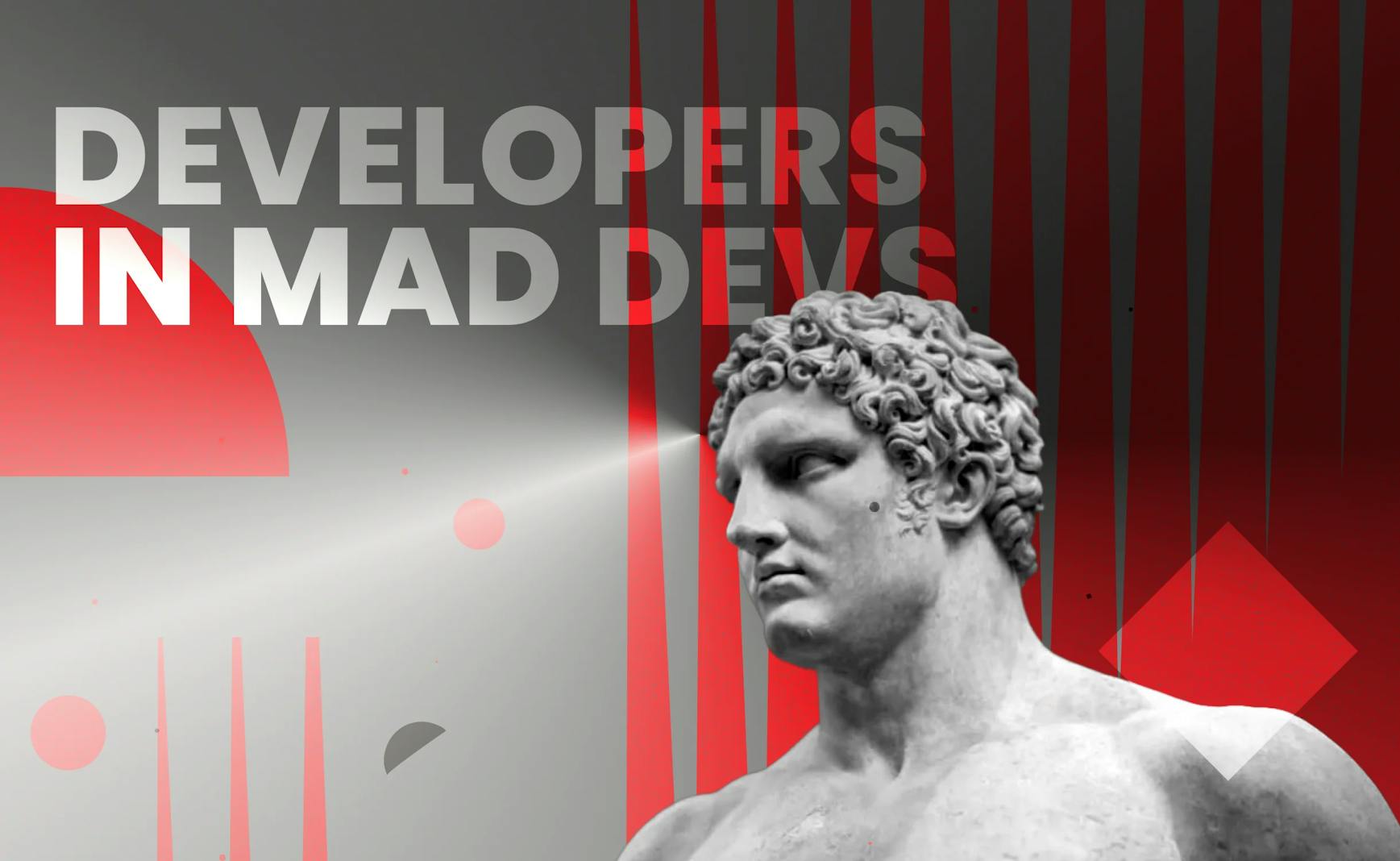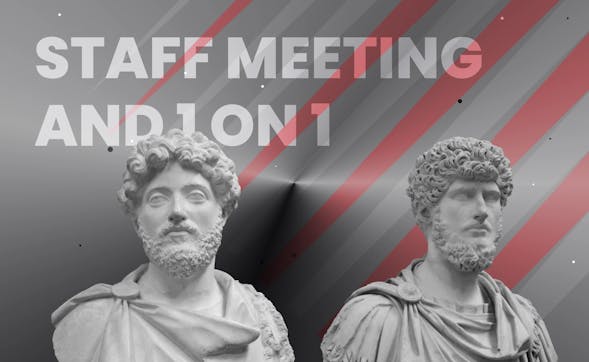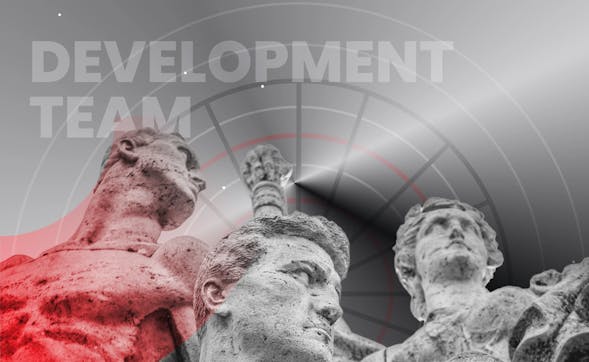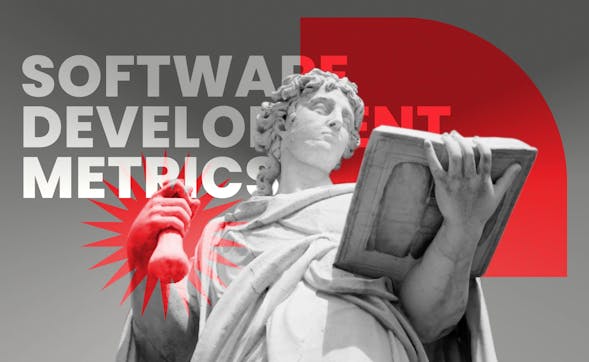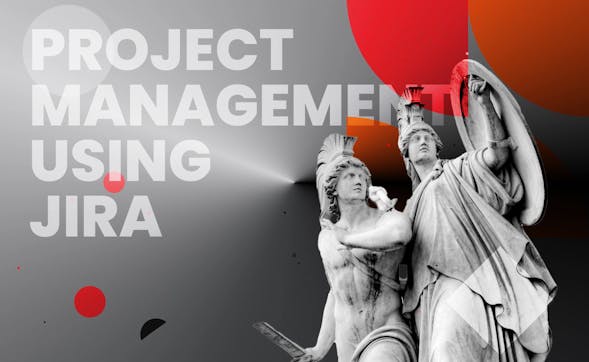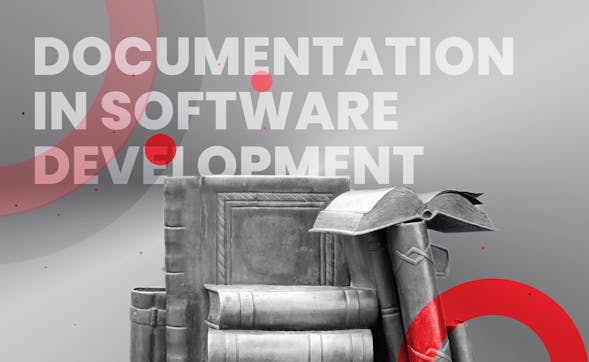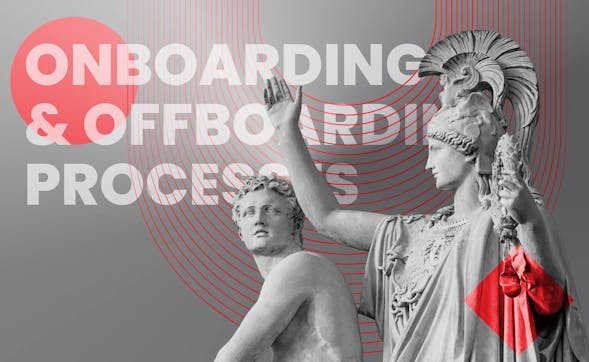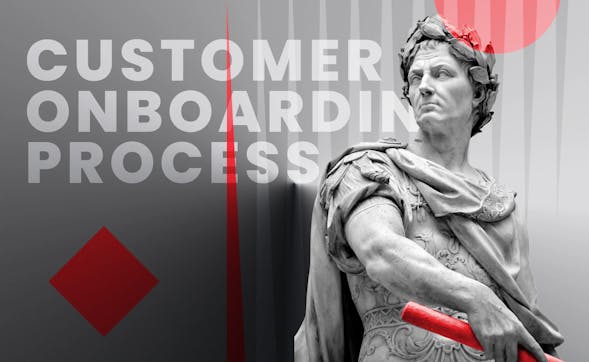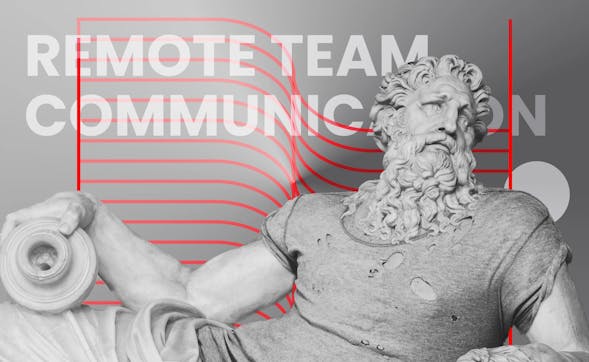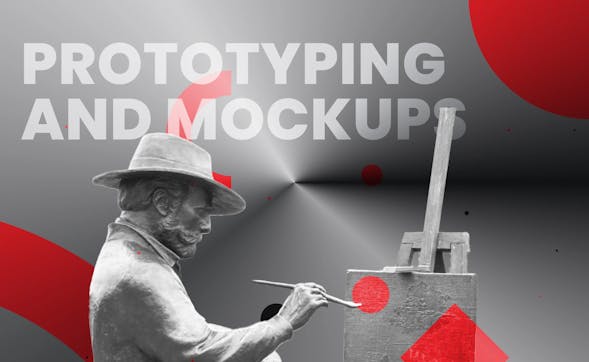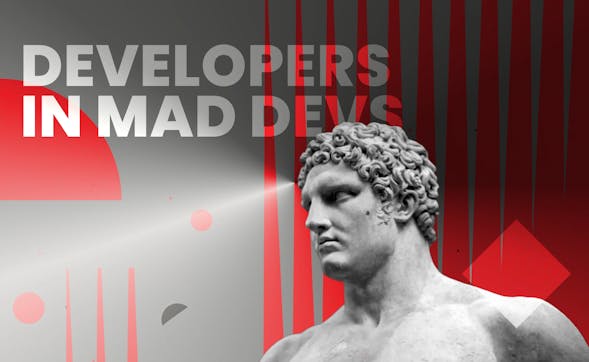There’s no newbie developer who doesn’t dream of becoming a high-level professional one day. It would be strange not to have such a dream. But what does it take and how long is the way?
There’s no secret formula, and you can’t just turn into a godlike programmer overnight. It takes years. However, there are some actionable practices that can make your way to professional growth shorter.
Mad Devs is the place to grow and develop both professionally and personally. In this post, we’ll share our first-hand experience in helping developers become better copies of themselves.
Good software developers: Who are they?
Before we start answering the question "How to be a good developer?", let’s figure out who a good developer is. Let’s paint a picture of a true professional that could and should be a role model for beginner programmers. So, a good developer is someone who:
✔ Knows what self-discipline is
In short, self-discipline is the ability to control yourself. Self-disciplined people have strong willpower. They are able to motivate themselves, identify their further development, set goals, and constantly work towards them in order to achieve.
These words fit the description of a good developer perfectly well. Ace programmers are self-organized people who know how to master their time. They are predictable, which means they don’t cause problems for other people by irrationally taking their time or scatterbrained behavior.
Every arrangement and agreement made with a professional programmer is cut and dried. That’s why customers choose to cooperate with professionals even if the price they pay is high.
✔ Invests in self-education
Education has always been one of the most solid and promising areas to invest your time and money in. By constantly educating yourself, you can stay relevant and valuable in the rapidly changing job market.
Great developers never stop learning and upgrading their skills. They feel a hunger for knowledge and spare no expense in sating their appetite. Thus, professional programmers explore various knowledge resources, take courses, participate in programming activities and events, such as hackathons, contests, conferences, and pet projects, and engage in other learning experiences. All this makes up a beneficial contribution to self-improvement and personal growth.
✔ Communicates a lot
One of the essential soft skills that are required for a professional developer is communication. While interacting with others, people can learn, teach, exchange insights, and generate fresh ideas. Above that, most problems can be solved through effective communication.
Good developers are good communicators. They know how to discuss and convey their opinions, ideas, and any kind of information to others, be it peers, managers, customers, stakeholders, or end-users. So, it’s crucial not only to speak well but to listen well too. True professionals are very attentive and empathic listeners. They heed other people’s opinions, advice, and criticism. When missing the point of one’s argument, a proficient developer will simply ask questions.
Asking the right questions is what distinguishes a professional from a novice. Well-formulated questions pave the way for accurate and comprehensive responses, eliminating communication gaps.
✔ Plays as a team
Teamwork is of vital importance in the development process. Delivering a project successfully requires a concerted effort made by a group of people that might include developers, a PM, a tech lead, designers, DevOps, and QA engineers. So it’s simply impossible to stand on the sidelines and not to actively interact with the other team members.
Being excellent team players, expert developers are always eager to give a helping hand to colleagues and never hesitate to ask for help when needed. They know how to resolve conflicts effectively and without getting personal. They are flexible, responsive, and ready to pick up the baton at any time to ensure seamless project development.
How do we promote software developer growth?
Mad Devs places a high emphasis on staff development. To further the professional and personal growth of a software developer, we employ a set of powerful practices. Here’s what we do exactly:
There is a common belief that leveling up technical skills is the best way to transition from a junior to a senior developer. According to this approach, a newbie programmer should do more coding, learn more frameworks, study software architecture in-depth, etc.
We do not diminish the importance of technical knowledge. However, based on our experience, the difference between a junior and a senior developer is not only and not so much in technical as in soft skills they have. That means to upgrade oneself, a developer should:
- Master communication and listening skills
- Learn to ask the right questions
- Improve speechcraft and language proficiency
- Hone problem-solving and conflict resolution skills
- Learn to be a good team player
So when helping our developers grow personally and professionally, we pay much attention to the development of their soft skills.
We foster a growth mindset
When a person gets hired at Mad Devs, he or she becomes part of the big family where we cultivate a growth mindset culture. In other words, the continuous growth of the company goes hand in hand with the employees’ personal development. The key principles of the growth mindset established in Mad Devs comprise:
- Constant learning
- Close cooperation
- Open communication
- Regular feedback
- Learning from failure
For us, it is pivotal that developers could challenge themselves, take responsibility for their actions and face the consequences, defend their opinions, and think critically. For example, the Mad Devs programmers adopt the critical thinking approach to prevent the implementation of unnecessary features, saving the customer’s time and money.
We take up complex projects
Mad Devs gives priority to interesting, complex, and large-scale projects that require unconventional approaches and out-of-the-box solutions. We consider such projects as opportunities to grow, so we encourage our developers to accept and overcome challenges by taking part in the development process.
Among these challenges, there can be tight deadlines, sophisticated technologies, and building software from scratch.
Having worked on several complex projects, a developer can walk the path from a junior to a senior software engineer.
We assign mentors
At Mad Devs, novices have an opportunity to get assistance, advice, and support from mentors assigned to them. Mentors are senior developers, project managers, CTO or other specialists who can answer questions, share knowledge and experience, and guide newcomers, helping them improve their skills, progress their careers, and achieve personal growth.
We set up regular one-to-one meetings during which employees can ask and answer questions, give and receive valuable feedback, discuss hot topics, identify problems, and find solutions. Such meetings create a trustworthy environment and encourage people to maintain an open and frank dialogue.
A 1:1 allows a mentor or manager to assess employee engagement and commitment and make the right HR decisions.
We’re mindful of hard skills
By paying a great deal of attention to the development of soft skills, yet we put a strong focus on the hard skills of the team. Upgrading technical skills is of special relevance for juniors who aim to take the next step in their careers.
Unlike a product company where developers generally work on the same project, use a narrow spectrum of technologies, and perform repetitive tasks, Mad Devs is an outsourcing IT team that offers much more growth opportunities for software engineers. We can assign developers to various projects enabling them to work with different tech stacks. By learning new languages or frameworks, our programmers expand their knowledge base and raise their proficiency to a higher level.
For the same purpose, Mad Devs carries out pet projects, in which the team members can delve into new technologies and brush up on their hard skills.
We use a competency matrix
Mad Devs applies a competency matrix, or a skills matrix, for every job position available in the company. This is a grid with a detailed description of competencies, skills, and abilities that a person should have to be a perfect fit for the required position.
A competency matrix is a handy tool for PMs and HRs that can assist them in building a team for a project, adjusting the hiring criteria, evaluating and improving employee performance and productivity.
We use personal development plans
Assisted by a team lead, PM, or CTO, the Mad Devs developers write personal development plans, setting the goals they want to achieve within a certain time frame as well as identifying the goal blockers.
Depending on their needs, developers create personal development roadmaps with a list of particular technologies and fields of expertise they want to master. They can make schedules, set deadlines, and specify the desired results.
When communicating with the team during 1:1 and sync meetings, the PM or team lead can refer to the developers’ personal plans using them as checklists and reminders. This helps the team maintain their focus while pursuing the goals.
Tips to facilitate developer growth
There is plenty of advice on developer growth. Every company chooses their strategy, and every programmer follows tactics that he or she finds actionable. We have collected the most useful tips that can facilitate the transition from a newbie to a professional developer.
1. Use every opportunity to code
Practice makes perfect. The idea is commonplace, but it never ceases to be relevant. The more code you write, the higher the chances to improve it every time. In addition, regular practice can polish your problem-solving skills. While coding you can and certainly will come across roadblocks. Eventually, you will learn to overcome them quickly and effectively. In addition to your regular job, you can engage in pet projects and hackathons. This is a great way to sharpen your skills and harness new technology.
2. Learn whenever possible
Learning is a never-ending process. Whether you are a novice or an expert, there is always something new to learn. As a programmer, you can derive knowledge from a wide variety of sources. Apart from learning from your mistakes, you can learn by reading books, blogs, and articles, listening to podcasts, watching YouTube videos, or using any other source of information.
3. Communicate effectively
Developers do not only code a lot but also communicate a lot. Transparent communication is one of the cornerstones of successful project implementation. When communicating openly with your coworkers and customers, you can build trust, minimize blind spots, and deliver greater results. Be clear, concise, and objective when speaking and, what’s more important, be attentive, engaged, and open-minded when listening.
4. Be a team player
Developers, even if they work from home, never remain in complete isolation from the rest of the team, at least virtually. Any project’s development is always a collaborative effort, so teamwork skills are essential for a developer. The major qualities of an effective team player embrace responsibility, flexibility, commitment, and involvement. Regular meetings, pair programming, and peer code review not only allow developers to provide and get constructive feedback but also give them a sense of team spirit.
5. Be part of the community
A developer community can be your peer, mentor, and teacher rolled into one. For example, a programming forum or Q&A website is a perfect place to seek help, discuss ideas, and share experiences. By attending specialized events, such as meetups and conferences, you can listen to industry leaders, ask questions, or try your hand at public speaking. Being a member of a developer community, you can keep up with the latest technology trends.
6. Develop critical thinking skills
Lack of experience doesn’t mean you have to take everything for granted. So when you undertake a task or approach a situation, look at it from a critical point of view. Ask as many questions as possible, consider all pros and cons, and find the most suitable solution. A critical thinker should rely on logic, common sense, and objective data. Critical thinking is a sign of mastery and a key aspect of the problem-solving and decision-making processes.
Conclusion
Being an expert developer is not only about writing clean and robust code. Some newbies and juniors are capable of doing this too. Developer growth is measured by a range of skills and characteristics, which, among others, include:
- Self-discipline
- Teamwork
- Communication skills
- Problem-solving abilities
- Critical thinking
At Mad Devs, we pay careful attention to the personal and professional growth of our software developers. We help them improve their soft skills and tackle complex problems under the guidance of proficient mentors. By building a culture of teamwork and cultivating a growth mindset, we have created a well-orchestrated team of tech talents able to meet and exceed customer expectations.

